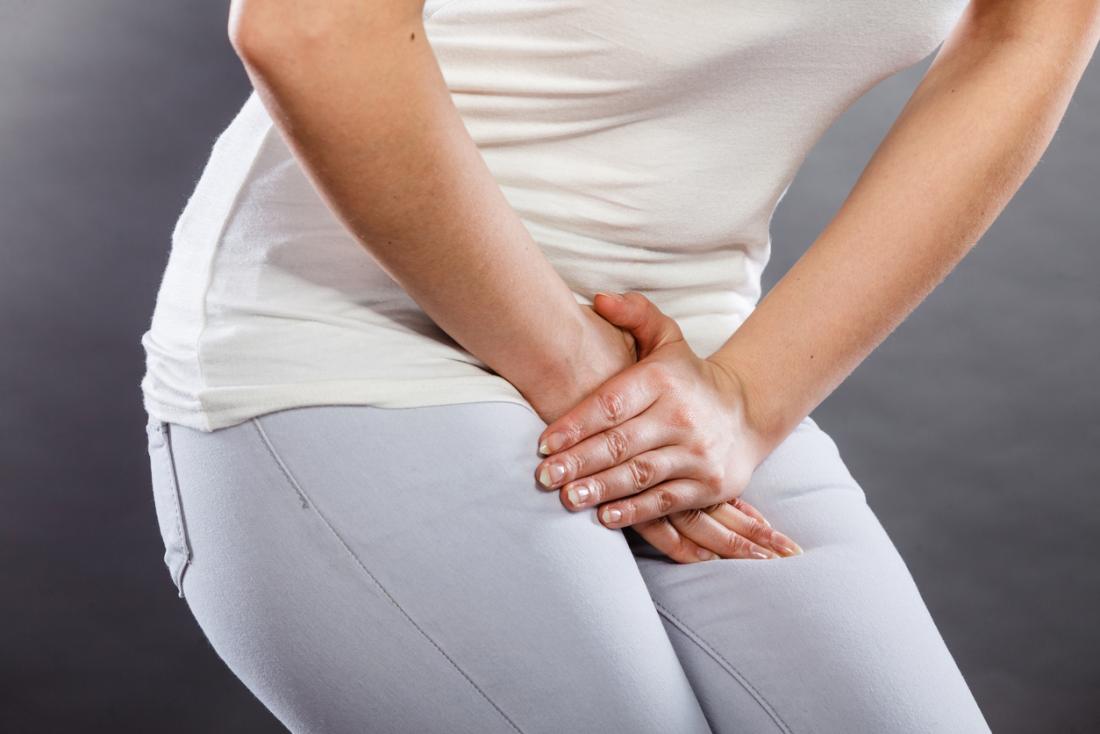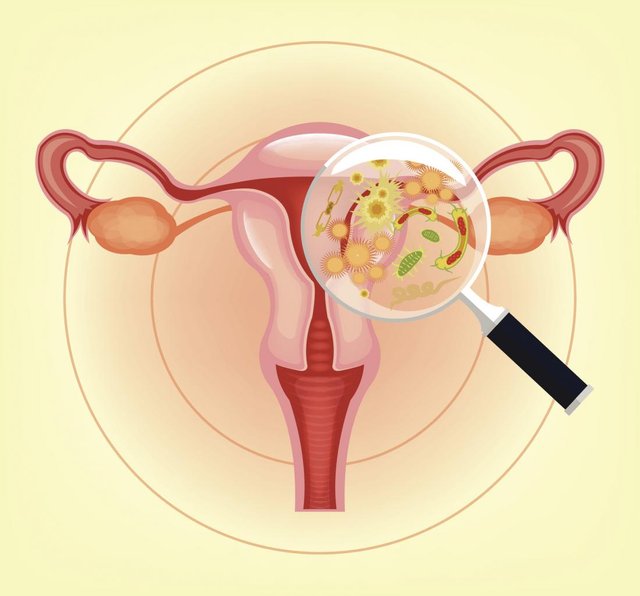Vaginitis: Causes, indications, and treatment
Vaginitis is an irritation of the vagina. It typically comes about because of a disease. The patient ordinarily has a release, tingling, consuming, and conceivably torment.
It is a typical condition, and most ladies will have it http://www.ashasexualhealth.org/stdsstis/vaginitis/
at some time in their life.
The vagina is the muscular canal that runs from the cervix to the outside of the body, lined by a mucus membrane. It has an average length of about 6 to 7 inches.
only part of the vagina that is normally visible from the outside is the vaginal opening.
Contents of this article:
- https://www.medicalnewstoday.com/articles/175101.php?sr#types_of_vaginitis
- https://www.medicalnewstoday.com/articles/175101.php?sr#symptoms_vaginitis
- https://www.medicalnewstoday.com/articles/175101.php?sr#causes_vaginitis
- https://www.medicalnewstoday.com/articles/175101.php?sr#diagnosis_treatment_prevention_vaginitis

Vaginitis can lead to severe irritation and discomfort.
Symptoms
The most common symptoms of vaginitis include:
- irritation of the genital area
- discharge that may be white, gray, watery, or foamy
- https://www.medicalnewstoday.com/articles/248423.php leading to redness and swelling of the labia majora, labia minora, and perineal area, mainly due to an excess of immune cells
- dysuria, which is pain or discomfort when urinating
- painful sexual intercourse, known as https://www.medicalnewstoday.com/articles/192590.php
- foul or fishy vaginal odor
Types and causes of vaginitis
There are several types of vaginitis, depending on the cause.
The most common are:
- Atrophic vaginitis: The endothelium, or lining of the vagina, gets thinner when estrogen levels decrease during the menopause, making it more prone to irritation and inflammation.
- Bacterial vaginosis: This results from an http://www.nhs.uk/conditions/bacterialvaginosis/Pages/Introduction.aspx
in the vagina. Patients usually have low levels of a normal vaginal bacteria called lactobacilli. - Trichomonas vaginalis: Sometimes referred to as http://www.cdc.gov/std/trichomonas/stdfact-trichomoniasis.htm
, it is caused by a sexually transmitted, single-celled protozoan parasite, Trichomonas vaginalis. It may infect other parts of the urogenital tract, including the urethra, where urine leaves the body. - Candida albicans: A yeast that causes a fungal infection, known as vaginal thrush. Candida exists in small amounts in the gut and is normally kept in check by normal gut bacteria.
Causes
Infection is the most common cause of vaginitis, including candidiasis, bacterial vaginosis, and trichomoniasis. After
https://www.medicalnewstoday.com/articles/156451.php , infectious vaginitis accounts for http://www.aafp.org/afp/2000/0901/p1095.html of cases. Less commonly, vaginitis may also be caused by https://www.medicalnewstoday.com/articles/155653.php , Chlamydia, mycoplasma, herpes, campylobacter, some parasites, and poor hygiene.
Vaginitis can occur before puberty, but different types of bacteria may be involved. Before puberty, Streptococcus spp is a more likely cause, sometimes because improper hygiene practices spread bacteria from the anal area to the genitals.
The proximity of the vagina to the anus, lack of https://www.medicalnewstoday.com/articles/277177.php , lack of pubic hair, and lack of labial fat pads may increase the risk of vulvovaginitis in https://www.ncbi.nlm.nih.gov/pmc/articles/PMC1719516/pdf/v088p00324.pdf . Vulvovaginitis is an inflammation of the vagina and vulva. It can affect women of all ages.
After puberty, infection is most often due to Gardnerella.
Sometimes, vaginitis can stem from an allergic reaction, for example, to condoms, spermicides, certain soaps and perfumes, douches, topical medications, lubricants, and even semen.
Irritation from a tampon can also cause vaginitis in some women.
Factors that increase the risk of vaginitis include:
- pregnancy
- douching and using vaginal products, such as sprays, spermicides, and https://www.medicalnewstoday.com/articles/162762.php devices
- using https://www.medicalnewstoday.com/articles/10278.php
- wearing tight pants or damp underwear
- low estrogen levels during https://www.medicalnewstoday.com/articles/155651.php
Women with https://www.medicalnewstoday.com/info/diabetes/ are particularly http://www.diabetes.org.nz/about_diabetes/complications_of_diabetes/womens_sexual_health vaginitis.
Diagnosis, treatment, and prevention
The doctor will carry out a physical examination and ask about medical history. A sample of discharge may be taken to try to determine the cause of the inflammation.
The cause of vaginitis may be diagnosed by checking the appearance of the vaginal fluid, vaginal pH levels, the presence of volatile amines (the gas that causes a bad smell), and the microscopic detection of specific cells.
Treatment
Treatment depends on the cause. It may include low-potency topical steroids, applied to the skin, topical or oral antibiotics, antifungals, or antibacterial creams.

Antifungal or antibiotic drugs can treat vaginitis.
Bacterial vaginitis (BV) is usually treated with antibiotics,http://www.ashasexualhealth.org/stdsstis/vaginitis/metronidazole (Flagyl), or clindamycin.
Medications used to treat a fungal infection include butoconazole and clotrimazole.
Other options include:
- Cortisone cream to treat severe irritation.
- Antihistamines, if the inflammation appears to stem from an allergic reaction.
- Topical estrogen cream, if the vaginitis is due to low estrogen levels.
If a woman is pregnant, she should make sure her doctor knows, because vaginitis can affect the fetus, and because some treatment options may not be suitable.
Prevention
The following http://www.mayoclinic.org/diseases-conditions/vaginitis/manage/ptc-20258751 will help prevent vaginitis:
- good hygiene, using a mild soap without irritants or scents
- wear cotton underwear
- avoiding douching and irritating agents, found in hygiene sprays, soaps, and other feminine products
- always wiping from front to back to avoid spreading bacteria from the anus to the vagina
- wearing loose clothing
- practicing safe sex
- use antibiotics only when necessary
@mdsaimonuddin

Congratulations @mdsaimonuddin! You have completed some achievement on Steemit and have been rewarded with new badge(s) :
Click on any badge to view your own Board of Honor on SteemitBoard.
For more information about SteemitBoard, click here
If you no longer want to receive notifications, reply to this comment with the word
STOPDownvoting a post can decrease pending rewards and make it less visible. Common reasons:
Submit
Hi! I am a robot. I just upvoted you! I found similar content that readers might be interested in:
https://www.medicalnewstoday.com/articles/175101.php
Downvoting a post can decrease pending rewards and make it less visible. Common reasons:
Submit
great work! keep it up!
Downvoting a post can decrease pending rewards and make it less visible. Common reasons:
Submit
nice vary good
Downvoting a post can decrease pending rewards and make it less visible. Common reasons:
Submit